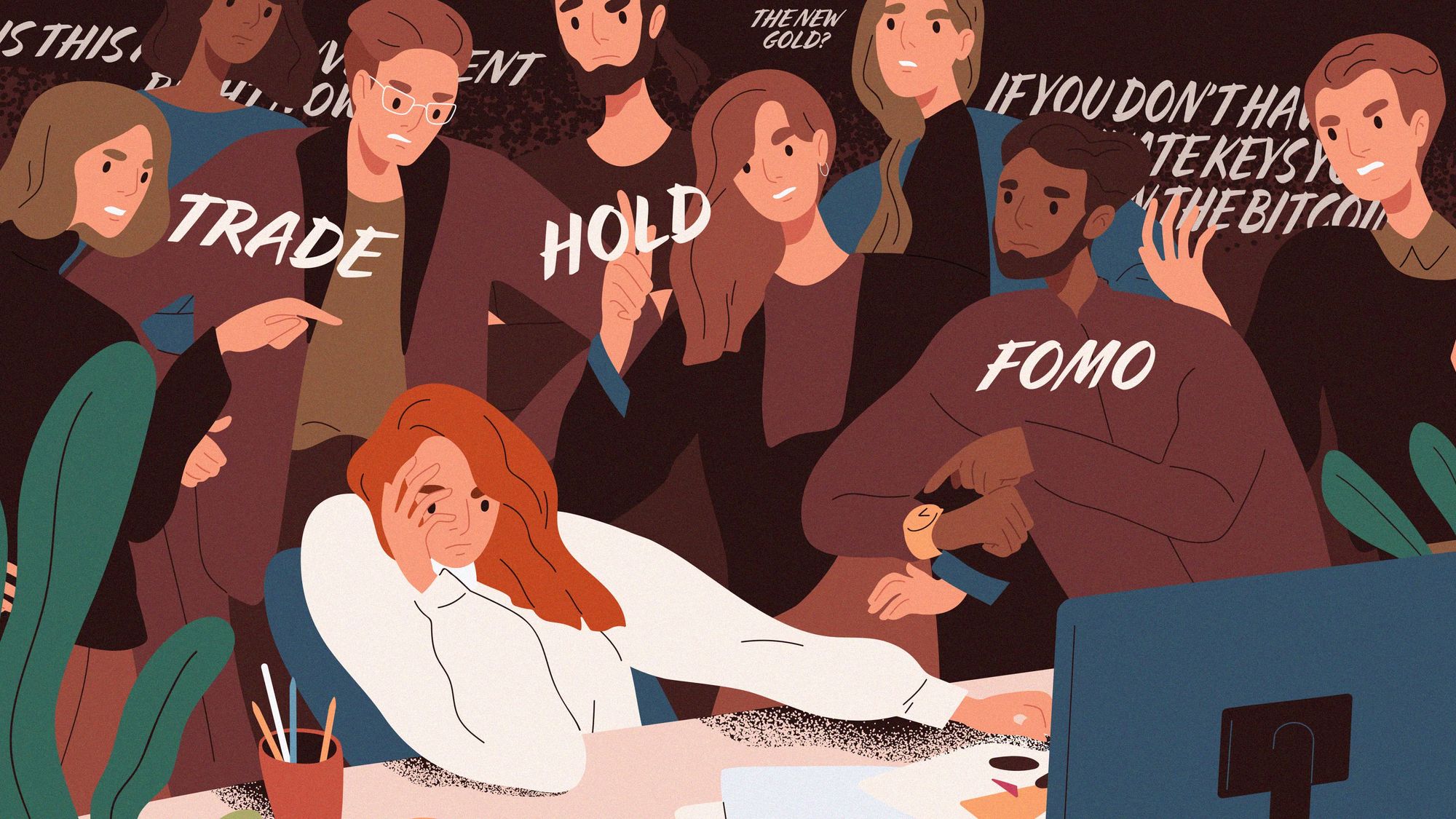Making the Trade

Crypto has brought trading to the masses. But is that actually a good thing?
The language of trading has become so commonplace in the cryptosphere that it’s easy to forget how utterly bizarre it is that regular schmoes like you and me are being given access to such sophisticated trading tools and instruments. Want to trade options? Forget years of training in quantitative analytics - here’s a fun two-minute video explainer instead. Throwing your money into an active volcano has never been easier!
Indeed, if you wanted to point to one thing that crypto has already disrupted, it’s the idea of trading as both pastime and profession. In the face of international, hyper-volatile, 24/7 market activity, crypto exchanges have had to innovate and evolve or face rapid extinction. The result has been an explosive arms race, where increasingly exotic and high-risk trading instruments have become an expected and easy-to-access part of the ecosystem.
After all, if you can use EMA 7-21-50-99 compression theory alongside multi-exchange order book analysis as the basis for a coin-agnostic put-and-call strategy, I mean, why wouldn’t you?

A long time coming
Legacy markets have long treated so-called retail participants as an almost embarrassing afterthought. The UI sucked, the fees were eye-watering, the prohibitions downright patronising. Take, for instance, the idea of a sophisticated investor (AKA anyone who earns more than $250k a year). Theoretically it’s a way of protecting people from risky investments, but in practice it’s just a blunt, outmoded way of keeping regular folk away from high alpha opportunities such as seed funding rounds and IPOs.
Crypto has transformed all that. Trading has become fast, frictionless and, a lot of the time, fun. Traditional gatekeepers have become increasingly powerless as global exchanges provide one-click access to IEOs, high-leverage instruments and even stock market derivatives. So mainstream has trading become, that TikTok investors are a legitimate and booming social media phenomenon. Just, please, I beg of you, don’t ever take their advice.
Just because you can
But here’s the kicker: most people are terrible at trading. The allure of making shitloads of money in a short space of time by clicking a few buttons is hard to resist, but it rarely works that way for the casual futures flipper. Full-time traders who are honest about their craft will tell you that it’s stressful, time-consuming and filled with a level of failure that most people would be shocked and horrified by. But when the wins come...
So, how do you balance the legitimate opportunities of active trading with the very real dangers? It’s all about balance and risk management. Even the best traders only trade with a small portion of their portfolio - perhaps 10-20%. The rest should be high-conviction, long-term holds, such as bitcoin and ethereum. That’s the side you don’t touch, even if you’re on the receiving end of a savage correction, because you know that time in the market will always beat timing the market.
Crypto could barely be more bullish right now and that’s a great environment for trading. But be careful, because it only takes a few shonky decisions to leave you with less bitcoin than when you started - even if you’re actually making money. And given what could well happen to bitcoin over the next year or two, we think having less of it is the worst possible outcome right now.
Happy trading!
Luke from CoinJar
P.S. If you’re keen to give trading a shot, CoinJar Exchange has some of Australia’s lowest fees, deepest order books and most advanced trading tech. Try it today!
We are not affiliated, associated, endorsed by, or in any way officially connected with any business or person mentioned in articles published by CoinJar. All writers’ opinions are their own and do not constitute financial or legal advice in any way whatsoever. Nothing published by CoinJar constitutes an investment or legal recommendation, nor should any data or content published by CoinJar be relied upon for any investment activities. CoinJar strongly recommends that you perform your own independent research and/or seek professional advice before making any financial decisions.
Don’t invest unless you’re prepared to lose all the money you invest. This is a high‑risk investment and you should not expect to be protected if something goes wrong. Take 2 minutes to learn more: www.coinjar.com/uk/risk-summary.
Cryptoassets traded on CoinJar UK Limited are largely unregulated in the UK, and you are unable to access the Financial Service Compensation Scheme or the Financial Ombudsman Service. We use third party banking, safekeeping and payment providers, and the failure of any of these providers could also lead to a loss of your assets. We recommend you obtain financial advice before making a decision to use your credit card to purchase cryptoassets or to invest in cryptoassets. Capital Gains Tax may be payable on profits.
CoinJar’s digital currency exchange services are operated in Australia by CoinJar Australia Pty Ltd ACN 648 570 807, a registered digital currency exchange provider with AUSTRAC; and in the United Kingdom by CoinJar UK Limited (company number 8905988), registered by the Financial Conduct Authority as a Cryptoasset Exchange Provider and Custodian Wallet Provider in the United Kingdom under the Money Laundering, Terrorist Financing and Transfer of Funds (Information on the Payer) Regulations 2017, as amended (Firm Reference No. 928767).

